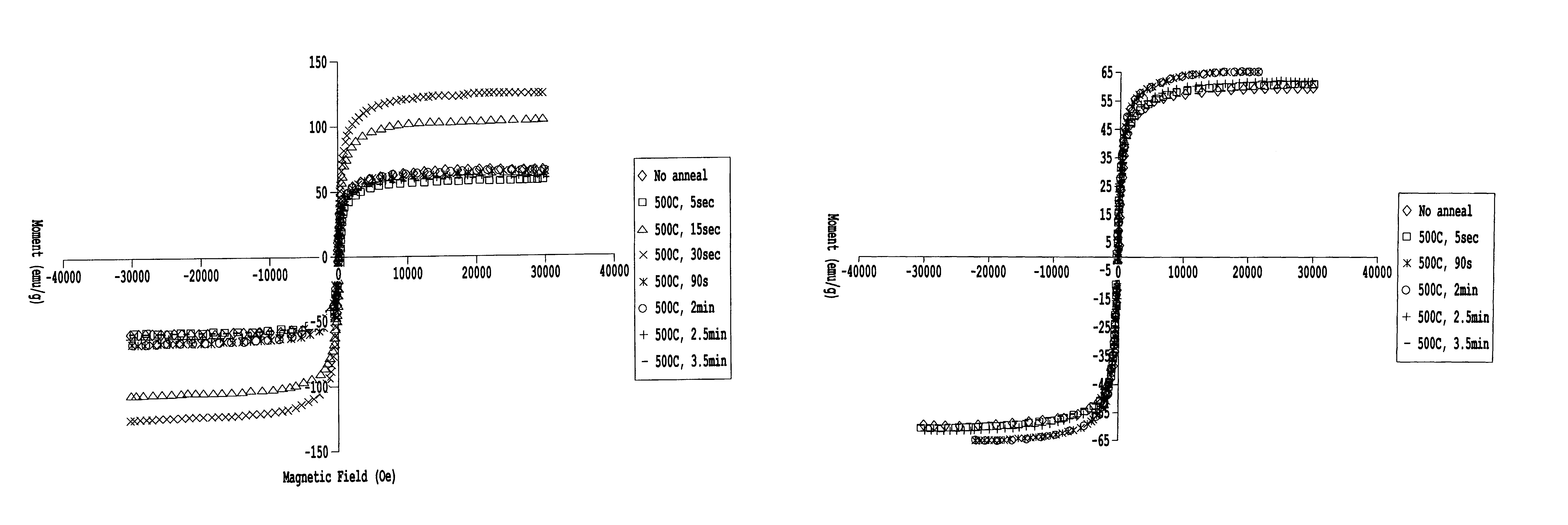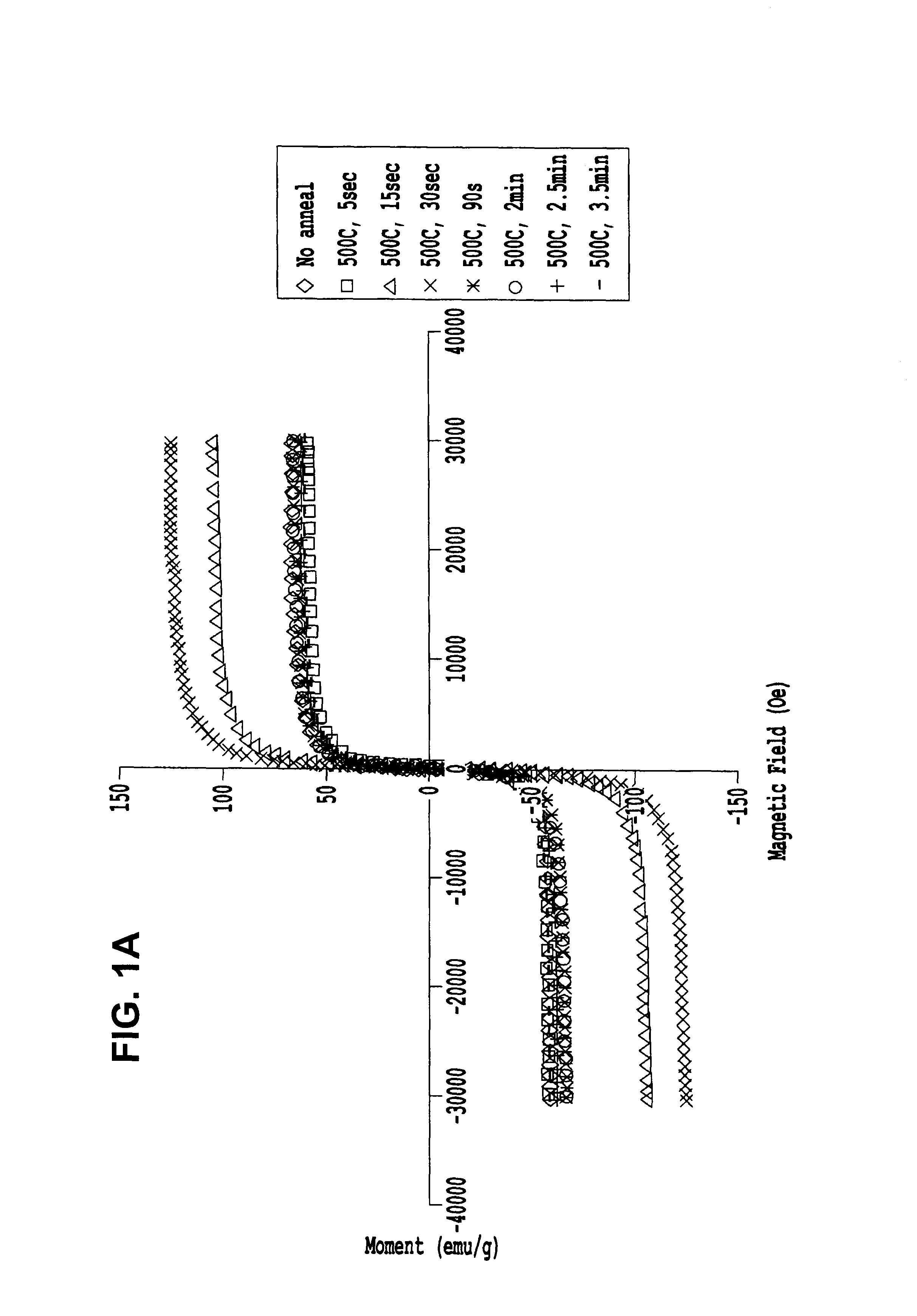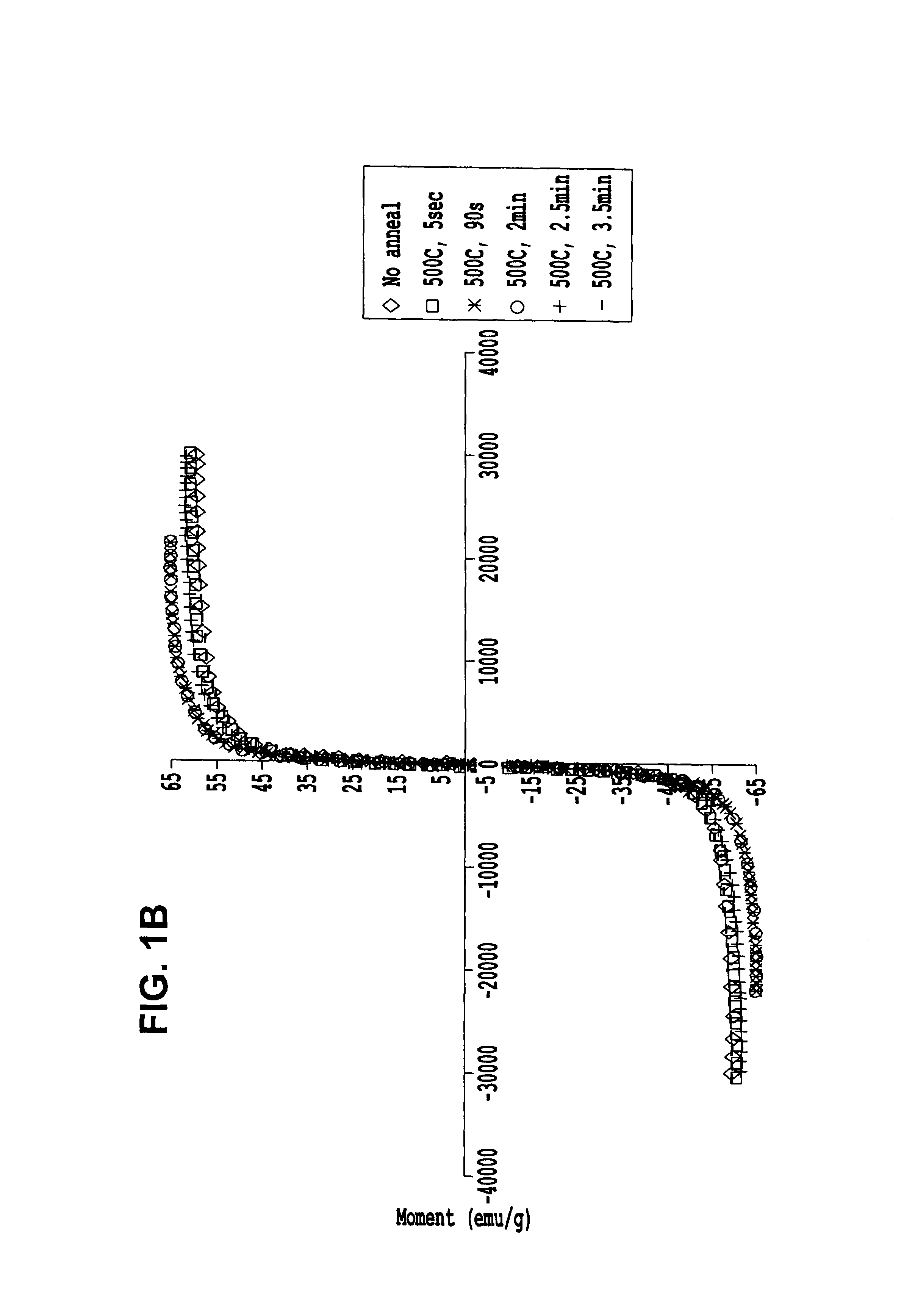Superparamagnetic iron oxide and silica nanoparticles of high magnetic saturation and a magnetic core containing the nanoparticles
a technology of iron oxide and silica nanoparticles and magnetic core shells, which is applied in the direction of magnet bodies, cores/yokes, inductances, etc., can solve the problems of high core loss, energy loss in the core material, and the proportion of power loss, etc., to achieve good mechanical properties, increase green strength, and high temperature tolerance
- Summary
- Abstract
- Description
- Claims
- Application Information
AI Technical Summary
Benefits of technology
Problems solved by technology
Method used
Image
Examples
examples
Core / Shell Iron Oxide / Silica-coated Nanoparticles
[0067]Nanoparticles (Fe3O4 / SiO2) were synthesized by the aqueous reaction of ammonium hydroxide with iron chloride and then treating the product with tetraethyl orthosilicate, in ethanol using triethylamine as the base-catalyst, to form silica shells. These particles were then purified using ethanol rinse and magnetic separation. The solvent was decanted and the powder was dried and placed in an argon environment glove box to prevent further oxidation into the Fe2O3 (maghemite) phase. See U.S. application Ser. No. 13 / 529,316, filed Jun. 21, 2012, for further details.
[0068]During all annealing runs, heating and cooling rates were kept at the maximum in order to reduce the possibility of particle growth. Annealing temperature was varied between 300° C. and 600° C., while annealing time (at temperature) ranged from 1 second to 3.5 minutes.
[0069]The annealed Fe3O4 / SiO2 core / shell nanoparticles are sintered under heat and pressure with a f...
PUM
| Property | Measurement | Unit |
|---|---|---|
| diameter | aaaaa | aaaaa |
| temperature | aaaaa | aaaaa |
| diameter | aaaaa | aaaaa |
Abstract
Description
Claims
Application Information
 Login to View More
Login to View More - R&D
- Intellectual Property
- Life Sciences
- Materials
- Tech Scout
- Unparalleled Data Quality
- Higher Quality Content
- 60% Fewer Hallucinations
Browse by: Latest US Patents, China's latest patents, Technical Efficacy Thesaurus, Application Domain, Technology Topic, Popular Technical Reports.
© 2025 PatSnap. All rights reserved.Legal|Privacy policy|Modern Slavery Act Transparency Statement|Sitemap|About US| Contact US: help@patsnap.com



